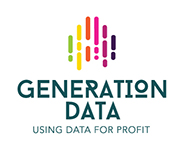Phase 2 of the Generation DATA’s pilot testing methodology is starting, with the aim to test the project Teaching Data Skills Curriculum and Open Education Resources.
The overall objective of the Generation DATA’s Teaching Data Skills Curriculum and Open Education Resources is to provide lecturers and teachers (particularly but not exclusively in management disciplines) with a new teaching model which they can use to enhance students’ data skills.
The pilot testing consists in a small scale preliminary study conducted in order to evaluate and improve upon the Generation Data resources prior to their full scale launch.
The testing will ensure the high relevance and quality of Generation Data Teaching Data Skills Curriculum and Open Education Resources for targeted users. At the same time, it will assess the relevance of Generation Data training resource course content and the ease of use of delivery mechanisms – most notably on mobile devices and tablets.
The pilot test strategy foresees three distinct yet but interconnected testing phases:
- PHASE 1 (finalised) – Internal testing/evaluation conducted by each academic partner with at least two colleagues/specialists in data management per organisation.
- PHASE 2 (starting) – 15 Teachers/Trainers and 60 Students will take part in the pilot testing. Detailed feedback from participants will be collected using specific online forms. All the information collected will be reviewed to prepare a detailed report outlining findings and recommendations. On the base of these, the consortium will adapt and finalise the materials.
- PHASE 3 (Letterkenny – IE, 30Mar–3 Apr20) – A Train the Trainer Week will be organised in Ireland, hosted by the Letterkenny Institute of Technology, for 16 teachers and trainers working in the higher education sector. The aim of the training will be to teach them the use of Generation DATA’s Curriculum and OERs so that they apply them on their return to their organisations. The participants will be 4 representatives each from EUCEN, Letterkenny Institute of Technology, University of Szczecin and Vilnius University.
The pilot testing activities will help the project consortium to obtain:
- an objective evaluation of the ability of the course to achieve the desired learning outcomes;
- direct feedback from representatives of the target group as to their opinions on the usefulness, relevance and user-friendliness of the course, complemented by statistical analysis of their navigation and interaction with digital materials;
- informed commentary from educators regarding the appropriateness of the curriculum, content and delivery mechanisms for the target group.




